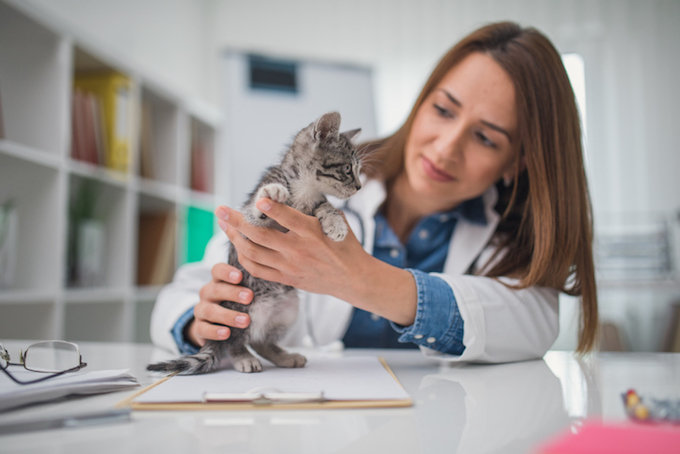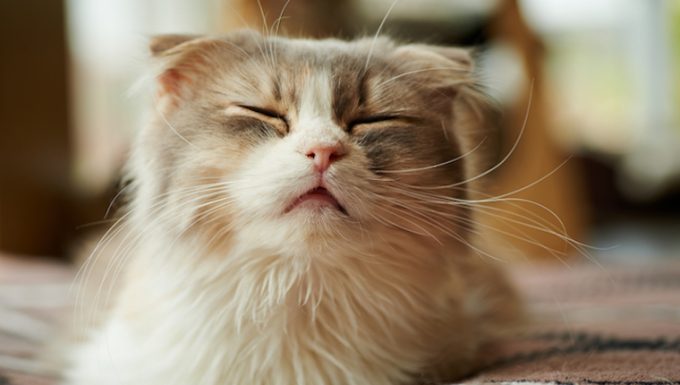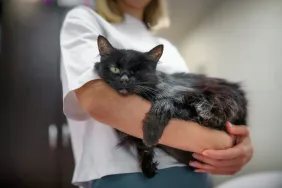Cryptococcosis in cats is a fungal infection. The condition is caused by a cat breathing in spores found in decaying wood, soil, and bird poop.
Unfortunately, the condition is the most common fungal infection for cats. It can cause harm to the central nervous system, respiratory tract, plus the skin and eyes.
If you see the signs of the condition in your cat, then get to a veterinarian for a proper diagnosis and treatment.
Here’s what you should know about the symptoms, causes, and treatments for the condition.
Symptoms of Cryptococcosis in Cats
The condition produces a range of symptoms. Many of them affect the respiratory system. For instance, some of the most common symptoms include:
- Swollen nose
- Sneezing
- Discharge from the nose
- Polyps
Additionally, the condition can affect a cat’s central nervous system. For example, when that happens a cat can experience these symptoms:
- Depression
- Muscle weakness
- Seizure
- Dilated pupils
- Walking around in circles
Causes of Cryptococcosis in Cats

The cause of the condition is breathing in spores from a fungus called Cryptococcus. Decaying wood, soil, and bird poop can all contain the fungus.
Unfortunately, when the fungus enters a cat’s bloodstream, it can spread throughout the body.
Treatments for Cryptococcosis in Cats
Firstly, your vet will ask about your cat’s symptoms. Secondly, your vet will ask about any recent circumstances where your cat could have caught the fungus.
Thirdly, a number of special tests can be used to confirm the condition. Some of those tests include:
- Cytology (often by swabbing the nose)
- Fungal culture (which can be taken from urine)
- Polymerase chain reaction assay (taken from a throat sample or biopsy)
- Latex agglutination test (a type of antigen test)
In general, treatment begins with anti-fungal medication. As always, if your vet prescribes your cat any medicine, stick to the exact dose and frequency instructions. Additionally, complete the full course of medicine.
While recovering from the condition, make sure to provide your cat with a quiet and calm environment. Also, keep up regular visits with your vet to monitor their recovery.
Have you ever cared for a kitty who suffered from this condition? How did your vet help your cat recover? Let us know in the comments section below.









